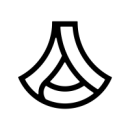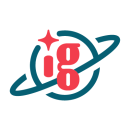Any engineer who has found a good mentor early in their career knows the value of someone helping them down the right path. Having a dedicated leader teach you the ropes of networking, communicating and mastering both hard and soft skills can make all the difference for someone entering the tech industry.
And for those reaching the next stage of their career, it is natural to start thinking about the best strategies for paying it forward.
The best approach for encouraging mentorship won’t be the same for every leader or company. We talked with experienced engineering mentors at Anduril Industries, Qualtrics, Intercept Games and Wyze about a variety of mentoring opportunities they have developed for leaders and co-workers, and through the development of company programs.
Anduril Industries, for example, encourages organic mentoring relationships, along with more directed programs, such as the Woman of Anduril group. Meanwhile, Intercept Games has created several knowledge-sharing programs to build “a culture of trust, psychological safety and unity among the team.”
Other local players like Qualtrics focus on employee-led mentorship programs. At Wyze, they schedule regular one-on-ones and brown bag luncheons.
While their approaches may vary, all of these leaders reinforced that effective mentorship is the key to successful engineering teams, and encouraging mentorship among your direct reports can have a huge business impact.
Anduril is a defense technology company, whose goal is to solve some of the most important and complex national security challenges. Motion Planning Engineer Josh Bennett likes to shuffle up who works with whom to keep knowledge-sharing organic and fresh on his team.
What’s a practice your team follows that encourages a culture of mentorship and knowledge-sharing among your team members?
We find ways to regularly cycle team members between core product work and deployed integration work. This transition often provides enough of a shake-up to encourage mentorship and knowledge-sharing in an organic way. My team has a unique makeup that allows us to cycle team members in this way, but the principle of stirring the pot and shuffling up roles and interactions is really key for team cohesion and collective empathy.
How do you, as a leader, serve as a mentor to members of your team?
Approach to mentorship depends on the availability and approachability of the leader and specific needs of the team. The most important instances of mentorship will be prompted by team members, not the leader. To unlock those moments, a leader should foster a culture where they have an active connection with each team member through one-on-ones, informal conversations, and other interactions. Above all, every member of the team should know that they can approach their leader for mentorship they need, regardless of how busy that individual can be.
I have had times when mentoring the team was more than half of my work week: working through features and coding together, testing and troubleshooting in the field, and taking a very active, hands-on role. In other instances, I have gone weeks during a critical lead up to a demo where I was rarely at the office, focused entirely on the problem at hand. In cases where I was missing in action, it was key to have capable members of the team who I could entirely delegate the role of mentorship and direct leadership to. Every leader’s primary goal should be to train and develop members of the team who can take on this role, acting in their stead.
What formal mentorship programs does your company offer, and what does this program entail?
Anduril offers a number of mentoring programs for specific needs. One program I have found really effective in the past is through our Women of Anduril group. The group allows outreach among members to get mentorship for women who are in their early career or who are potentially working as the only woman in their team. This was particularly helpful as a way to build confidence and learn strategies for success for one of my team members, who met regularly with her mentor and was able to obtain unique insights that I wouldn’t have been able to provide.
Mentorship programs like this can be immensely helpful, bridging the gaps that a leader may not be able to cover.

Qualtrics’ experience management software platform helps companies listen and respond to customers and other stakeholders. Its Director of Software Engineering, Jamie Morningstar, shared details about their employee-led programs.
What’s a practice your team follows that encourages a culture of mentorship and knowledge-sharing among your team members?
In our team, we have a weekly standing brown bag meeting that’s self-organized by the team. Individuals sign up to share on a topic. It could be a training topic, a design document they wrote and want to review, or a brainstorming session they want to facilitate. Opportunities like this give every employee at every level the chance to both learn and lead regularly. Of course, nobody needs to wait for a scheduled weekly meeting in order to present or share on a topic, and team members are welcome to organize a discussion any time. But we find that having time specifically set aside to share and learn increases team member participation.
How do you serve as a mentor to members of your team?
As a direct people leader, I serve in many facets of career planning for my team. From long-term dreams, to the next promotion, to quarterly planning and prioritization, we get to work together on every phase of individual growth. My very favorite part of my job is that, as we talk about long-term goals, we get to sculpt shorter-term projects to focus on the skills and experiences that will build toward the team member’s desired future state.
What formal mentorship programs does your company offer?
At Qualtrics we generally focus on employee-led mentorship. Q Mentor is one of those programs. Those willing to mentor add their names to a list, along with specific areas they feel especially qualified or interested in mentoring in. Folks looking for a mentor can look through the list of available mentors to find somebody in the organization who has skills they’d like to partner on. The mentorship program is usually 12 weeks long with weekly meetings focused on specific goals that the mentee is bringing to the relationship.
At the beginning and end of the program, both parties evaluate what they were looking for from the relationship and how well the program helped accomplish those goals. We also have a more specific mentorship program designed for different phases of the employee journey or individual needs. For example, there is a structured onboarding process with an established team member partnering with new hires to help them in their new role and their first few projects. We also have a structured mentor program for interns, plus a program specifically for pregnant employees and their managers to help everyone feel informed and ready to navigate maternity leave successfully.
Intercept Games is a game development studio. Senior Engineering Manager Paul Furio shared the top mentorship strategies he’s developed at multiple work environments, including a method that has raised the bar for hiring talented engineers.
What’s a practice your team follows that encourages a culture of mentorship and knowledge-sharing among your team members?
Our team follows the Correction Of Errors process, adopted from my time at Amazon. When there is a critical problem in our technology, systems or processes, we assign an owner to dive deep into the problem, follow the Five-Whys method, and root cause a holistic solution and process change to prevent the problem from ever recurring. We then review these findings with a group of senior staff members, who are able to apply the lens of their wisdom and experience to point out missed opportunities, areas of investigation that may have been overlooked, and impacts to teams that may lay outside the immediately affected area of the problem space.
Because anyone can read these documented findings later (or even attend the review meetings), we have found that the overall organizational quality has risen, as all team members gain insight into the problem-solving techniques and unique perspectives of people who may be in different disciplines. These team members bring their experience in completely different backgrounds to bear on the issue at hand. As a result, we are hitting our high bar for engineering excellence at Intercept Games.
How do you serve as a mentor to members of your team?
In addition to regular one-on-ones with my directs and mentoring peers in solid leadership techniques, when I first arrived at Intercept Games over two years ago, I realized we had an inconsistent and poorly tuned interview process that was leading us to have a lower bar for hiring than we actually needed to be successful. Applying my prior decade of experience as a hiring manager, I developed an hour-long presentation that ran through behavioral interviewing techniques, how to look for consistency and character, and examples of good and bad candidate feedback. I then worked with our team leaders to develop questions that were tuned for the core values of Intercept Games so that we could split our questioning by group and accurately gauge candidate alignment with our values without worrying about interviewers asking the same questions in separate sessions. Finally, I recommended that we tune our debrief process to avoid bias and keep standards high for making decisions on an offer.
This is now a presentation that I give annually, and I am training up new leaders on the team in conducting consistently high-caliber interviews so that we can improve our overall team with each new hire.
How has a mentorship culture helped your team grow?
Mentorship at Intercept Games has created a culture of trust, psychological safety and unity among the team. This is not a place where we tolerate toxic office politics, because we instead understand that we are all pulling in the same direction, and everyone has something to learn from everyone else. No one employee can be the master of every skill necessary to build incredible gaming experiences. But, by sharing our knowledge and history, and by being genuinely curious about how our teammates have handled difficult situations in the past, we can put new tools in our chest that are ready for each of us to apply when necessary.
We have several employees who, when presented with job offers from Intercept Games, had competing offers from more well-known tech companies in the Seattle area. They chose to join Intercept because they saw the benefits of a culture where their career would grow with input from industry experts who were willing to put in the time to mentor, not just to drive KPIs to their maximum values. Even years after joining, these employees still see how Intercept has a unique culture that allows them to do their best work, and be their best selves every single day.
At smart home technology company Wyze, Senior Principal Architect Keith Ho swears by buddy programs for new engineers learning the ropes.
What's a practice your team follows that encourages a culture of mentorship and knowledge-sharing among your team members?
First, we strongly emphasize transparency and team success. We promote learning initiatives through knowledge-sharing from engineers using biweekly brown bags, demos and online training sessions.
We also implemented an onboarding procedure called “buddy program” for new employees, allowing them to work closely with a dedicated buddy to help ease their onboarding process and not be overwhelmed.
How do you serve as a mentor to members of your team?
To be a successful mentor, you first need to build a relationship. Then you need to understand each team member individually and provide different guidance in different stages of their career growth, either through directing, coaching, supporting or delegation. But first, you must understand their development level and provide the appropriate support.
We have short weekly one-on-ones to build trust and relationships. This time can be used to focus on direct reports’ wellbeing, challenges and any personal matters. The purpose is to foster connections.
We also have a longer monthly one-on-one where we focus on career growth, development, commitments and accountabilities.
How has a mentorship culture helped your team grow?
Mentorship has helped many new employees foster close relationships with one another. As a result, we have seen many strong friendships fostered beyond our workplace. This has resulted in more transparency and in-depth knowledge-sharing.
At work, we have seen engineers become more well-rounded, have a knowledge-driven mentality and even apply what they learned to different disciplines, such as management.












